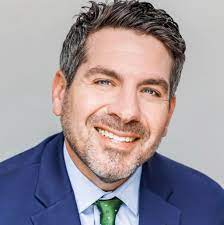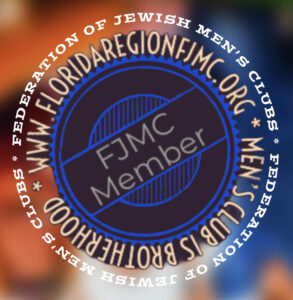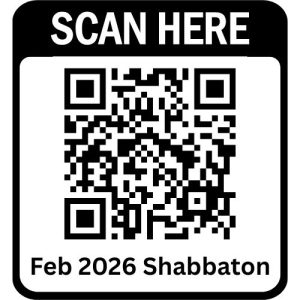
- By Rabbi Naum Raucher, Executive Director of the Federation of Jewish Men’s Clubs (FJMC)
“My teacher, Rabbi Elliot Dorff, used to say that prayer is like baseball and required practice. If you want to get good at baseball and hit a homerun every time, you need to practice. The same is true with prayer. If we want to feel like you’ve hit a homerun in prayer, you need to practice. There is no magic pill that will suddenly create new meaning the prayer. There is only the practice of prayer to make you more adept at what the words mean and how the experience should feel. The prompts and meditations I’ve given you here are meant to focus your thoughts on the essence of the prayer you are practicing. Take your face out of the siddur for a moment and let the power of the ideas in the prayer wash over you. Ask yourself what it really means to listen, stand up, be peaceful, and take responsibility. Perhaps then we will realize that the point of prayer is not only to communicate with God, but to remind ourselves about what we are capable of.
Shofar
Meditation: The sound of the shofar is primal. Part music, part siren, part animal cry, the blasts of the shofar focus our attention like nothing else. Adults crane their necks to see better; children are lifted onto shoulders to watch as the shofar is blown. Whole, broken, and whole again, the sounds shake us, awaken us, and stir us. Ultimately, they direct our attention to return to our hearts, our people and our God.
Practice: As you hear the shofar being blown, focus on the different sound combinations. May each sound of the shofar awaken you to the sacred presence in all things. Allow all the sounds of the shofar to stir you, linking you to the past and the future. Reminding you of the individuals and communities that sustain and need you. And let it connect you to the place where you are now and to your commitments to the future. (The Book of Jewish Sacred Practices).
T’kiah! – One blast: What does the first sound call you to remember?
Shevarim! – Three broken blasts: What felt broken in the past year?
T’ruah! – Nine short broken notes: What does this alarm mean for your community?
T’kiah gedolah! – The longest blast: What will you devote your breath and strength to in the coming year?
Shema
Meditation: Listening is an act of love. How can I listen closely and deeply? How can I make someone feel loved by listening to them?
Practice: Try to really listen to the people who are talking to you. Put away all distractions and focus on them. Can you hear what they are expressing underneath their words?
Amidah
Meditation: When will you stand up and speak out? When will you step back and allow others to shine?
Practice: Take a private moment. Visualize any challenge in your life. See it in front of you, and stand up tall and face it. Take 3 steps backward, starting with your weak foot. Once completed, pause, standing with your feet together. Then take 3 steps forward, starting with your strong foot. Stand tall and erect, with your feet together, and breathe. The next move is yours.
Oseh Shalom
Meditation: What is “peace” anyway? Have you ever thought about it? Peace might mean that we are safe, as long as we live without violence or pain. The best our Torah offers are visions of peace, with love and justice flowing together like a mighty stream. But peace in the world is not possible until we learn to be peaceful beings ourselves. Inner peace refers to equanimity and resilience in our responses to conflict. This can lead to wholeness.
Practice: Take a moment to quiet your own mind. Remove all distractions from around you and breathe. Ask yourself, do I possess an internal conflict between who I am and I should be? Envision what peace from that conflict looks like and dwell in that idea for longer than one moment.
Aleinu
Meditation: On bended knee we bow and give thanks… Our Tradition teaches us that one should be as gentle as a reed and strong like a cedar. Inevitably in life there are things that push us around. Without flexibility, we would surely break. But there must also be things that keep us standing straight. We call this integrity.
Practice: Stand facing a full-length mirror. Look at yourself, top to bottom. Who, or what, challenges your moral com- pass? In your mind, separate what you will and won’t bow to in your life. That which you can/will be flexible towards, bend your body at the waist and bow to it. That which you cannot bow to, stand up tall and face your reflection. How do you feel? What do you see?
I am sharing this post for anyone who might need some prayer or meditation prompts for the High Holiday services and beyond. If you need additional assistance, please email me at nraucher@fjmc.org.“
Rabbi Noam Raucher is originally from Hamden, CT; the son of Gail and Steve Raucher; and a brother to Ari, Michal, Aviva. He is the brother-in-law to Carly, Yoni, and Matt; and the proud uncle to 6 nieces and nephews. He is the product of a joyfully Jewish upbringing, having attended: a Solomon Schechter day school, Camp Ramah, USY, and Hillel at Hofstra University. He was ordained at the Ziegler School of Rabbinic Studies in 2011, and has served in the pulpit as a rabbi and educator on both the East and West Coasts. First at Temple Israel, in Charlotte, NC; and then at the Pasadena Jewish Temple and Center in Pasadena, CA. During the pandemic Rabbi Noam received certification and started a side practice as a spiritual coach for men and a divorce coach for Jews. His podcast, The Jewish Divorce Project, has garnered thousands of downloads and praise. Rabbi Noam has also been an active participant and speaker in the modern men’s movement since 2018, serving as a local men’s group facilitator and regional group coordinator for the organization the Mankind Project. Since the pandemic concluded, Rabbi Noam has been teaching middle Judaic school at Pressman Academy in Los Angeles. In his spare time, Noam enjoys: being outdoors and hiking, playing with his two sons, Judah and Elijah, exercising, podcasting and searching for the best breakfast burrito in town. Noam currently serves as Executive Director of the FJMC.
Many thanks to FJMC Executive Director Rabbi Naum Raucher for sharing this moment of Jewish Learning with the Florida Region of the Federation of Jewish Men’s Clubs (FJMC). We are part of a confederation of over 200 Jewish Men’s Clubs and Brotherhoods representing over 20,000 members across the United States, Canada, Latin America, and beyond. Learn more about how your Jewish Men’s Club or Brotherhood can affiliate with the FJMC at: https://www.fjmc.org/content/affiliating-fjmc.
The Florida Region of FJMC serves the needs of affiliated Men’s Clubs and Brotherhoods throughout the State of Florida. Get to know more about the FJMC Florida Region and our growing network of Jewish Men’s Clubs and Brotherhoods at www.floridaregionfjmc.org and please visit and LIKE our Florida Region FJMC Facebook Group at www.facebook.com/FloridaRegionFJMC.







